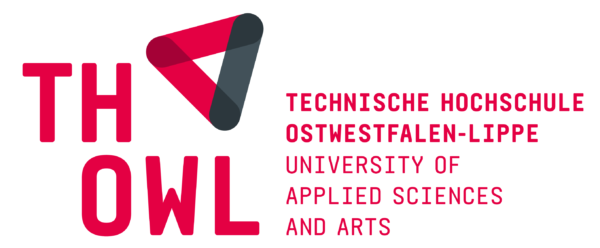The faces behind project GAIA

Andreas Besginow
THOWL

Jan David Hüwel
FernUniversität in Hagen
Research for Trustworthy Predictive Models

Imagine you’re measuring the temperature on your patio every day and writing it down. These are what we call “measurement data.” Some days are warmer, some are colder, but overall, it gets warm in the summer and cold in the winter. This overall pattern is called a “trend.” In our work, we focus on finding or learning these trends in the measurement data. We do this using something called Gaussian Process Models. A Gaussian Process Model is great at “learning” these trends. Even if there are a few unusually warm days in winter, the model still understands that it’s winter. Through learning, Gaussian Processes can also make predictions for the future, such as what the temperatures might be in the coming years.
Our research aims to improve these predictions and use them to detect changes and anomalies in the data. For example, we’ve been able to make Gaussian Processes learn new patterns faster. Additionally, we’ve taught the models some basic physical laws! Right now, we’re working on figuring out when a model is “good,” so we can compare different models. After all, we don’t want our temperature model to predict several warm days every winter just because it happened once.
Finally, we also want a Gaussian Process to notice when new data looks different from what it has seen before and explain what makes it different. For instance, if we put up an umbrella on our patio and it doesn’t get as warm during the day anymore, the model should say, “Warning: it’s not getting as warm during the day as before. Something has changed.”
Overall, with our project, we aim to help understand complex processes better and explain changes in those processes. By providing clear explanations, we can ensure that we can trust the predictions made by our models.

Cooperation
Project Publications
- Berns, Fabian, Jan David Hüwel, and Christian Beecks (2021). ‘‘LOGIC: Probabilistic Machine Learning for Time Series Classification’’. In: ICDM. IEEE, pp. 1000–1005.
- Berns, Fabian, Jan David Hüwel, and Christian Beecks (2022). ‘‘Automated Model Inference for Gaussian Processes: An Overview of State-of-the-Art Methods and Algorithms’’. In: SN Comput. Sci. 3.4, p. 300.
- Besginow, Andreas, Jan David Hüwel, Markus Lange-Hegermann, and Christian Beecks (2021). ‘‘Exploring Methods to Apply Gaussian Processes in Industrial Anomaly Detection’’. In: KI. Vol. 44.
- Besginow, Andreas, Jan David Hüwel, Markus Lange-Hegermann, and Christian Beecks (2024). ‘‘Finding commonalities in dynamical systems with gaussian processes’’. In: DataNinja sAIOnARA Conference, pp. 26–28. doi: 10.11576/dataninja-1162.
- Besginow, Andreas, Jan David Hüwel, Thomas Pawellek, Christian Beecks, and Markus Lange-Hegermann (2024). ‘‘On the Laplace Approximation as Model Selection Criterion for Gaussian Processes’’. In: arXiv preprint arXiv:2403.09215.
- Besginow, Andreas and Markus Lange-Hegermann (2022). ‘‘Constraining Gaussian Processes to Systems of Linear Ordinary Differential Equations’’. In: Advances in Neural Information Processing Systems. Ed. by Alice H. Oh, Alekh Agarwal, Danielle Belgrave, and Kyunghyun Cho.
- Gresch, Anne, Jana Osthues, Jan D Hüwel, Jennifer K Briggs, Tim Berger, Ruben Koch, Thomas Deickert, Christian Beecks, Richard KP Benninger, and Martina Düfer (2024). ‘‘Resolving spatiotemporal electrical signaling within the islet via CMOS microelectrode arrays’’. In: Diabetes, db230870.
- Hüwel, Jan David and Christian Beecks (2023). ‘‘Gaussian Process Component Mining with the Apriori Algorithm’’. In: DEXA (2). Vol. 14147. Lecture Notes in Computer Science. Springer, pp. 423–429.
- Hüwel, Jan David and Christian Beecks (2024a). ‘‘Discovering Structural Regularities in Time Series via Gaussian Processes’’. In: DSAA. IEEE, pp. 1–10.
- Hüwel, Jan David and Christian Beecks (2024b). ‘‘Frequent Component Analysis for Large Time Series Databases with Gaussian Processes’’. In:EDBT. OpenProceedings.org, pp. 617–622.
- Hüwel, Jan David, Fabian Berns, and Christian Beecks (2021). ‘‘Automated Kernel Search for Gaussian Processes on Data Streams’’. In: IEEE BigData. IEEE, pp. 3584–3588.
- Hüwel, Jan David, Andreas Besginow, Fabian Berns, Markus Lange-Hegermann, and Christian Beecks (2021). ‘‘On Kernel Search Based Gaussian Process Anomaly Detection’’. In: IN4PL (Revised Selected Papers). Vol. 1855. Communications in Computer and Information Science. Springer, pp. 1–23.
- Hüwel, Jan David, Anne Gresch, Tim Berger, Martina Düfer, and Christian Beecks (2022). ‘‘Analysis of Extracellular Potential Recordings by High-Density Micro-electrode Arrays of Pancreatic Islets’’. In: DEXA (2). Vol. 13427. Lecture Notes in Computer Science. Springer, pp. 270–276.
- Hüwel, Jan David, Anne Gresch, Fabian Berns, Ruben Koch, Martina Düfer, and Christian Beecks (2022). ‘‘Tracing Patterns in Electrophysiological Time Series Data’’. In: DSAA. IEEE, pp. 1–10.
- Hüwel, Jan David, Florian Haselbeck, Dominik G. Grimm, and Christian Beecks (2022). ‘‘Dynamically Self-adjusting Gaussian Processes for Data Stream Modelling’’. In: KI. Vol. 13404. Lecture Notes in Computer Science. Springer, pp. 96–114.
- Hüwel, Jan David, Georg Stefan Schlake, Kevin Albrechts, and Christian Beecks (2024a). ‘‘Discovering Propagating Signals in High-Content Multivariate Time Series via Spatio-Temporal Subsequence Clustering (In print)’’. In: Proceedings of the IEEE International Conference on Big Data.
- Hüwel, Jan David, Georg Stefan Schlake, Kevin Albrechts, and Christian Beecks (2024b). ‘‘Identifying Propagating Signals with Spatio-Temporal Clustering in Multivariate Time Series’’. In: SISAP. Vol. 15268. Lecture Notes in Computer Science. Springer, pp. 207–214.
- Schlake, Georg Stefan, Jan David Hüwel, Fabian Berns, and Christian Beecks (2022). ‘‘Evaluating the Lottery Ticket Hypothesis to Sparsify Neural Networks for Time Series Classification’’. In: ICDE Workshops. IEEE, pp. 70–73.


